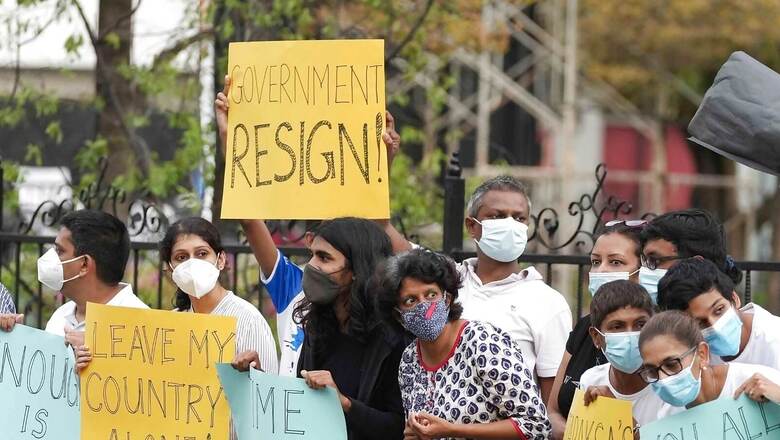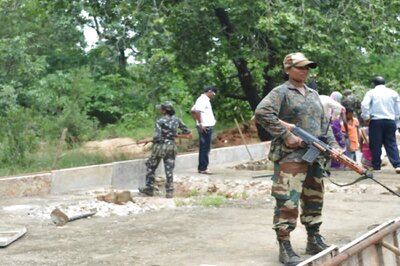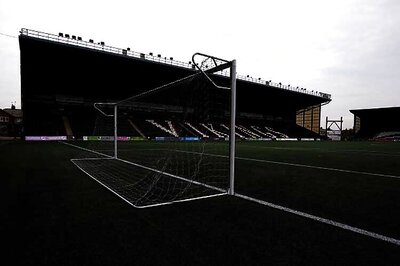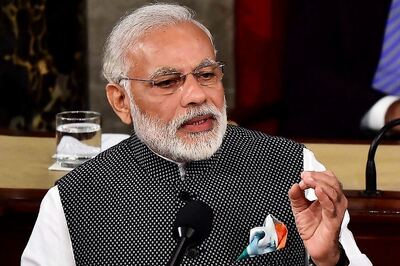
views
Sri Lankan cabinet ministers have all tendered their resignations late on Sunday night in the wake of the country reeling under a deep economic crisis. Prime Minister Mahinda Rajapaksa has, however, not quit yet. The cabinet ministers resigned from their positions at a late-night meeting, the country’s education minister Dinesh Gunawardena told reporters.
All the 26 ministers aside from President Gotabaya Rajapaksa and his elder brother PM Mahinda Rajapaksa submitted letters of resignation, Gunawardena said.
Earlier in the day, reports of Rajapaksa’s resignation had emerged, which were later trashed by the Prime Minister’s Office (PMO). The PMO dismissed the reports as false and added that there were no such plans yet.
The resignations come two days after President Gotabaya Rajapaksa declared a state of emergency as the island nation grapples with rising prices, shortage of essentials and rolling power cuts. On Saturday, the government implemented a countrywide curfew as protests turned violent. It is to run till early Monday.
Sri Lankan Cabinet Minister of Youth and Sports Namal Rajapaksa took to Twitter to announce his resignation. He is the son of Mahinda Rajapaksa.
I have informed the sec. to the President of my resignation from all portfolios with immediate effect, in hope that it may assist HE & PMs decision to establish stability for the people & the govt of #LKA. I remain committed to my voters, my party & the people of #Hambanthota.— Namal Rajapaksa (@RajapaksaNamal) April 3, 2022
The Sri Lankan government had blocked social media sites to prevent people from gathering in droves in capital Colombo to protest the government’s failure. The government, however, later lifted the ban after 15 hours. Services of Facebook, Twitter, YouTube, Instagram, TikTok, Snapchat, WhatsApp, Viber, Telegram, and Messenger were restored.
In Colombo on Sunday, some two dozen opposition leaders stopped at police barricades on the way to Independence Square, some shouting ‘Gota(baya) Go Home’. “This is unacceptable,” said opposition leader Eran Wickramaratne leaning over the barricades. “This is a democracy.”
Small groups in Colombo were standing outside their homes to protest, some holding handwritten banners, others with national flags.
Critics said the roots of the crisis, the worst in several decades, lay in economic mismanagement by successive governments that amassed huge budget shortfalls and a current account deficit. The crisis was accelerated by deep tax cuts Rajapaksa promised during the 2019 election campaign and enacted months before the Covid-19 pandemic, which wiped out parts of Sri Lanka’s economy.
(With agency inputs)
Read the Latest News and Breaking News here



















Comments
0 comment